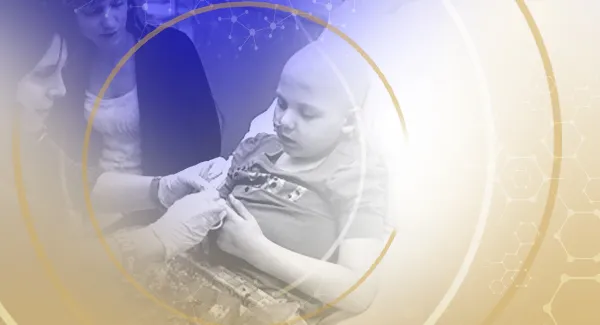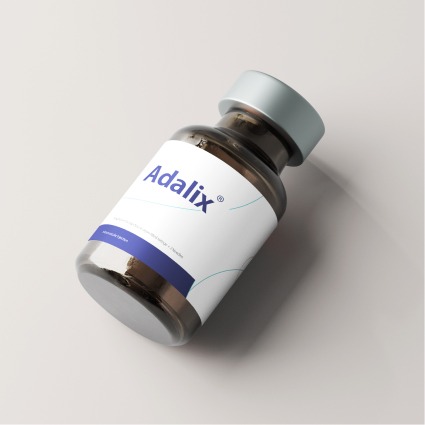Patient Background
Emily Whitehead is a pediatric patient who was diagnosed at age 5 with high-risk acute lymphoblastic leukemia (ALL) in 2010. Despite ALL being a typically curable childhood cancer, Emily’s disease course was extremely aggressive. She underwent intensive chemotherapy, during which she developed life-threatening complications (including necrotizing fasciitis in her legs) and barely avoided amputation. Though initial treatment induced a remission, Emily relapsed 16 months later with rapidly proliferating leukemia. Her disease progressed so fast that she became ineligible for a planned bone marrow transplant. By early 2012, after multiple rounds of chemotherapy failed to control the leukemia (buying only a few weeks of partial response), her local medical team felt there were no curative options left and even recommended hospice care. Unwilling to accept this dire prognosis, Emily’s parents sought a second opinion at the Children’s Hospital of Philadelphia (CHOP). At CHOP, oncologist Dr. Stephan Grupp offered a novel experimental treatment called CAR T-cell therapy (specifically an anti-CD19 CAR T-cell product then known as CTL019), which had shown promising early results in a few adult chronic lymphocytic leukemia patients. Emily’s family decided to pursue this option as a last hope.
CAR T-Cell Therapy and Treatment Course
In April 2012, at age 6, Emily became the first pediatric patient in the world to receive CAR T-cell therapy for ALL. The therapeutic product was an autologous anti-CD19 CAR T-cell infusion that would later be known as tisagenlecleucel (Kymriah). The treatment process involved several key steps:
T-Cell Collection
Emily’s T lymphocytes were collected via leukapheresis. Her cells were then sent to a specialized laboratory at the University of Pennsylvania to be genetically modified.
Genetic Engineering
In the lab, a chimeric antigen receptor (CAR) targeting CD19 (a protein on B-ALL leukemia cells) was inserted into Emily’s T cells. This engineered receptor reprograms the T cells to recognize and kill CD19-expressing leukemia cells.
Lymphodepleting Chemotherapy
While the CAR T cells were being manufactured, Emily received lymphodepleting chemotherapy to reduce her leukemia burden and “make space” for the incoming CAR T cells. This step also helps suppress the immune system enough that it will not immediately reject or impede the infused CAR T cells.
CAR T-Cell Infusion
One month after T-cell collection, Emily’s engineered T cells were infused back into her bloodstream. The infusion was given over three days (split dose) in April 2012. The modified T cells began circulating and hunting for leukemia cells.
Cytokine Release Syndrome (CRS) – Severe Reaction
Within days of the infusion, Emily became gravely ill as the therapy triggered a massive immune response. She developed high fevers, a precipitous drop in blood pressure, and difficulty breathing, requiring intensive care support. This condition, not yet well characterized at the time, is now known as cytokine release syndrome (CRS), a systemic inflammatory response to CAR T cells’ activation. Emily’s CRS was life-threatening: she went into shock with multi-organ dysfunction and needed a ventilator and high-dose vasopressors to maintain her blood pressure. Doctors worked around the clock, unsure if she would survive the week.
Innovative CRS Management
In a critical “Hail Mary” moment, the Penn/CHOP team identified that Emily’s immune system was releasing an extraordinarily high level of interleukin-6 (IL-6), a cytokine known to cause inflammatory symptoms. Fortunately, an IL-6 blocking drug, tocilizumab (an antibody originally used for rheumatoid arthritis), was available. With emergency approval, Dr. Grupp administered tocilizumab to counteract the IL-6 and calm the hyperactive immune response. This decision was made knowing it might control the toxic inflammation without hindering the CAR T cells’ cancer-fighting ability.
Recovery and Remission
Remarkably, Emily’s condition began to improve within hours of receiving tocilizumab. Her fever broke, and blood pressure stabilized as the CRS came under control. As she recovered over the next days, tests revealed astounding news: the engineered T cells had eliminated all traces of leukemia from her bone marrow. On a bone marrow biopsy performed just one week after the crisis, no cancer cells were detectable, indicating a complete remission. By her 7th birthday (about 2 weeks post-infusion), Emily was awake and off ventilator support, and the leukemia was in full remission. This outcome was far better than anyone had expected for such a refractory case.
Treatment Response and Outcome
Emily’s response to the CAR T-cell therapy was dramatically successful. She achieved a complete molecular remission of her ALL, and importantly, the remission proved to be durable. Follow-up evaluations showed that the CAR T cells persisted in her body for years, providing ongoing surveillance against leukemia. Emily remained cancer-free in the months and years after treatment. 5 years after her infusion, not a single leukemic cell had returned – an outcome almost unimaginable for relapsed ALL before CAR T therapy. This paved the way for the therapy’s formal approval: in August 2017, the U.S. Food and Drug Administration (FDA) approved tisagenlecleucel (brand name Kymriah) as the first CAR T-cell treatment, indicated for pediatric and young adult patients with relapsed/refractory B-ALL. This was a landmark—the first gene therapy approved in the United States—and it was largely built upon the success seen in Emily and other trial participants.
Importantly, Emily’s case has demonstrated long-term remission, suggesting that CAR T-cell therapy can potentially cure even highly resistant leukemia. As of 2022, a full ten years after her CAR T infusion, Emily remains in complete remission with no evidence of cancer. Dr. Grupp has cautiously used the word “cure” at this 10-year mark, noting that such durable responses were never seen before in relapsed ALL. Emily, now a healthy teenager, is living a normal life – a testament to the therapy’s impact. Her case has also guided medical understanding: the severe CRS she experienced taught doctors how to anticipate and manage this toxicity. Tocilizumab is now a standard rescue treatment for CAR T-induced CRS in patients worldwide, thanks to lessons learned during Emily’s recovery.
Emily’s extraordinary outcome was not an isolated fluke but part of a broader trend of CAR T-cell therapy successes. In clinical trials of Kymriah for pediatric ALL, over 80% of patients achieved complete remission. While not all remissions are lasting, approximately 50% of such children remain cancer-free long-term, a huge improvement compared to the pre-CAR-T era, in which only \~9% of relapsed ALL patients could achieve durable remission. Emily is among those long-term survivors, demonstrating the upper bound of what this therapy can achieve. Her case has inspired further innovations in immunotherapy and has given hope to many families. What was once a desperate experimental gamble became a revolution in pediatric cancer care, as thousands of patients have since been treated with CAR T cells.
In summary, this case study highlights how CAR T-cell therapy (in this case, tisagenlecleucel) led to a remarkable clinical improvement in a patient with otherwise incurable leukemia. Emily’s pre-treatment condition was critical and terminal, yet the personalized CAR T-cell therapy induced a complete remission and a long-term cure. This outcome not only saved a life but also catalyzed the development of CAR T therapies now available for other cancers (such as axicabtagene ciloleucel/Yescarta for aggressive lymphomas and ciltacabtagene autoleucel/Carvykti for multiple myeloma). Emily’s journey—from relapse and organ failure to remission and a decade cancer-free—is a compelling illustration of CAR T-cell therapy’s potential and an inspiring milestone in modern oncology.
Sources
Grupp SA et al. Chimeric Antigen Receptor–Modified T Cells for Acute Lymphoid Leukemia. New England Journal of Medicine. 2013;368(16):1509-1518. PMID: 23527958.
Mackall CL and Grupp SA. CAR T-Cell Therapy in ALL – The Beginning of the End of Leukemia? New England Journal of Medicine. 2018;378:954-955. DOI: 10.1056/NEJMe1800845.
The ASCO Post – Emily Whitehead, First Pediatric Patient to Receive CAR T-Cell Therapy, Celebrates Remission 10 Years Later.
Children’s Hospital of Philadelphia News – “Emily Whitehead… Celebrates Cure 10 Years Later.” (CHOP press release, 2022).
Fousek K and Mackall CL. Critical Role of the IL-6/TNF-α Cytokine Axis in Regulating CAR T-cell Therapy. Journal of Clinical Oncology. 2022;40(36):4411-4415. DOI: 10.1200/JCO.22.01810. (Discussion of CRS management inspired by cases like Emily’s)

